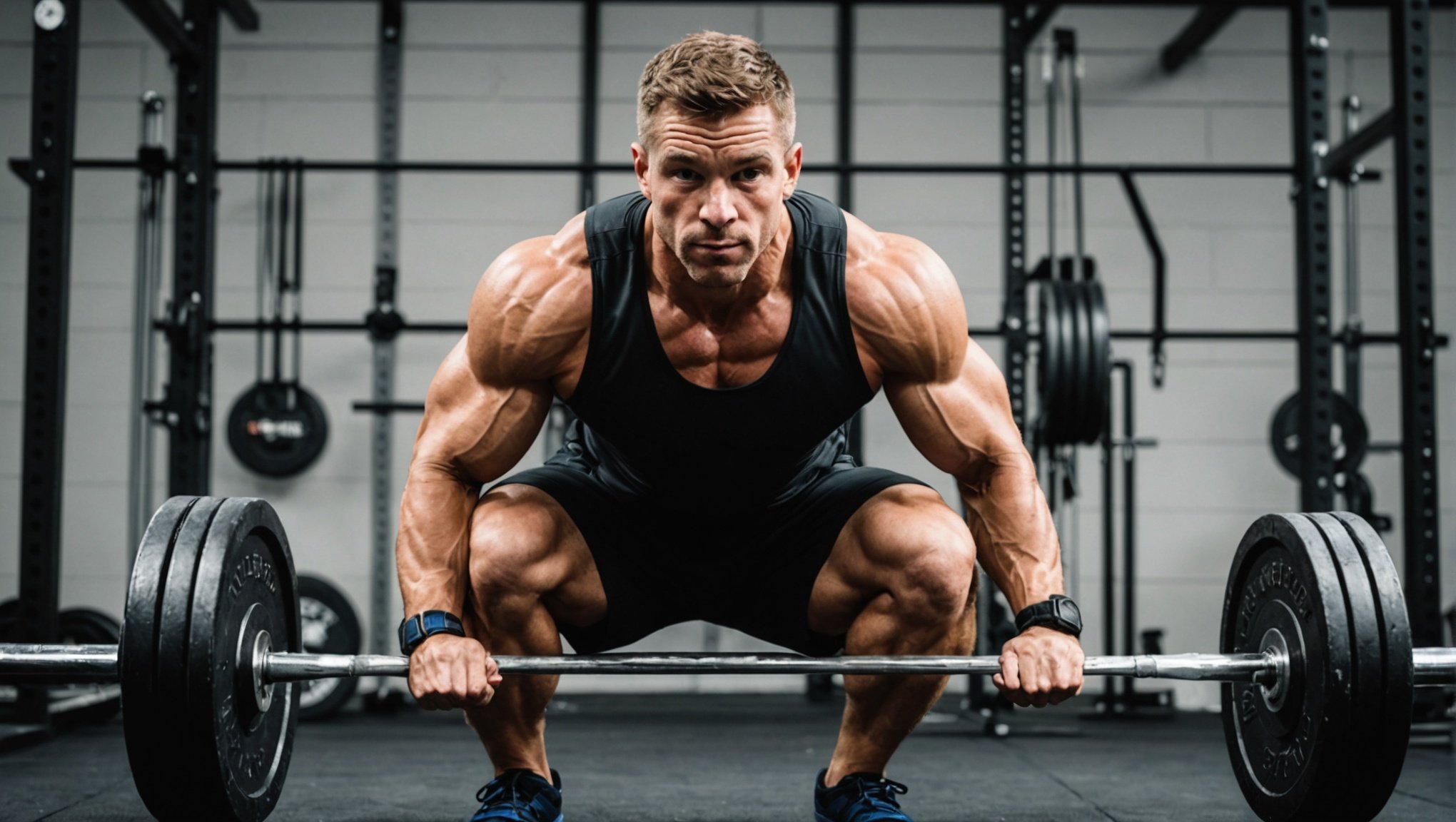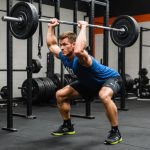Unlocking Optimal Muscle Recovery: Essential Nutrition Strategies for Weightlifters
When it comes to weightlifting and any form of intense physical training, muscle recovery is just as crucial as the exercise itself. Proper nutrition plays a pivotal role in this process, helping your body repair, rebuild, and strengthen your muscles. Here’s a comprehensive guide to the essential nutrition strategies that can enhance your muscle recovery and overall athletic performance.
Understanding the Importance of Muscle Recovery
Muscle recovery is not just about feeling better after a workout; it’s about optimizing your body’s ability to adapt and improve. During high-intensity exercise, your muscles undergo significant stress, leading to micro-tears and depletion of energy stores. Effective recovery strategies ensure that your muscles repair and rebuild, making them stronger and more resilient over time.
Also to discover : Explore classic art deco golf course prints to elevate your decor
The Role of Protein in Muscle Recovery
Protein is often considered the cornerstone of muscle recovery. Here’s why:
How Much Protein Do You Need?
The recommended daily intake of protein varies depending on the intensity and frequency of your workouts. For weightlifters, a general consensus is to consume 1 gram of protein per pound of body weight daily. For example, if you weigh 185 pounds, you should aim for 185 grams of protein[5].
In the same genre : Discover the best bd556 gel blaster for every enthusiast
Timing of Protein Intake
Consuming protein immediately after a workout is crucial. This is known as the “anabolic window,” a period when your muscles are most receptive to nutrient uptake. A post-workout snack or meal that includes a balance of carbohydrates and protein, such as chocolate milk, can help kickstart the recovery process[4].
Types of Protein
Different types of protein offer varying benefits. For instance, dairy products like Greek yogurt and cottage cheese provide a mix of fast-digesting whey protein and slow-digesting casein protein, which can enhance and prolong protein synthesis[3].
The Significance of Carbohydrates
Carbohydrates are often overlooked in the context of muscle recovery, but they are equally important.
Glycogen Resynthesis
After a workout, your glycogen stores are depleted. Consuming carbohydrates post-exercise helps replenish these stores, which are the body’s preferred source of energy. Aim for 1.8 to 3.2 grams of carbohydrates per pound of body weight daily[3].
Complex vs. Simple Carbohydrates
Complex carbohydrates, such as whole grains and sweet potatoes, are more beneficial than simple carbohydrates like sugars. They provide sustained energy and are rich in fiber, vitamins, and minerals[4].
Other Essential Nutrients for Muscle Recovery
While protein and carbohydrates are key, other nutrients play critical roles in the recovery process.
Omega-3 Fatty Acids
Omega-3s, particularly EPA and DHA, help prevent muscle breakdown and stimulate muscle synthesis. They are especially beneficial for older individuals or those recovering from injuries. Foods rich in omega-3s include fish like salmon and tuna, as well as nuts and seeds[2].
Vitamin D
Vitamin D is crucial for muscle health and can be particularly important if you don’t get enough sunlight or consume vitamin D-rich foods. It helps regulate muscle function and strength. If you’re deficient, consider consulting your healthcare provider about supplements[2].
Magnesium
Magnesium is involved in over 300 bodily reactions, many of which support muscle function. It aids in protein synthesis, muscle relaxation, and reduces muscle soreness. Include magnesium-rich foods like spinach, almonds, and pumpkin seeds in your diet[2].
Creatine
Creatine is a widely studied supplement that enhances muscle strength and power. It doesn’t directly build muscle but provides the energy needed to perform better during workouts. This can lead to increased muscle growth over time[2].
Practical Nutrition Strategies for Weightlifters
Here are some practical tips to help you optimize your nutrition for muscle recovery:
Balanced Diet
A balanced diet is the foundation of effective muscle recovery. Ensure your diet includes a variety of foods that provide all the necessary macronutrients and micronutrients.
### Sample Balanced Diet Breakdown
- **Protein**: 1 gram per pound of body weight
- Examples: Eggs, fish, Greek yogurt, cottage cheese, soybeans
- **Carbohydrates**: 1.8 to 3.2 grams per pound of body weight
- Examples: Whole grains, sweet potatoes, fruits, vegetables
- **Calories**: Ensure you consume enough calories to support muscle growth
- Aim for a caloric surplus if you're trying to build muscle
- **Omega-3s**: Include sources like fish, nuts, and seeds
- **Vitamin D**: Ensure adequate intake through sunlight, food, or supplements
- **Magnesium**: Include magnesium-rich foods like spinach, almonds, and pumpkin seeds
- **Creatine**: Consider adding creatine supplements to your routine
Post-Workout Nutrition
After a workout, aim to consume a mix of carbohydrates and protein within 30-60 minutes. Here are some examples of post-workout snacks:
### Post-Workout Snack Ideas
- **Chocolate Milk**: Provides a balance of carbohydrates and protein
- **Fruit Smoothie with Greek Yogurt**: Combines carbohydrates and protein
- **Banana with Peanut Butter**: Offers a mix of carbohydrates and healthy fats
- **Protein Shake with Carbohydrates**: Can include fruits or other carbohydrate sources
Active Recovery
Active recovery involves light physical activity to help your body recover from intense workouts. This can include light cardio, stretching, or yoga. Here’s why it’s important:
### Benefits of Active Recovery
- **Promotes Blood Flow**: Helps in the delivery of nutrients to your muscles
- **Reduces Muscle Soreness**: Gentle exercise can alleviate muscle soreness
- **Enhances Flexibility**: Improves range of motion and reduces stiffness
Supplements and Additional Aids
While a balanced diet is paramount, certain supplements can enhance your recovery and performance.
Creatine Supplements
Creatine is one of the most researched supplements for muscle strength and power. Here’s what experts say:
“Creatine doesn’t directly build muscle, but it gives your muscles the energy to perform better,” says Maria Lucey, a registered dietitian based in Ireland[2].
Protein Powders
Protein powders can be convenient for ensuring you meet your daily protein needs, especially post-workout.
“A heaping scoop of most protein powders will net you 25 to 30 grams of the nutrient,” notes Heather Leidy, Ph.D., a protein researcher[5].
Real-Life Examples and Anecdotes
Many athletes and weightlifters have seen significant improvements in their recovery and performance by adhering to these nutrition strategies.
Example: Professional Athlete’s Routine
A professional weightlifter might start their day with a high-protein breakfast, such as eggs and Greek yogurt, followed by complex carbohydrates like whole grains and fruits. Post-workout, they might consume a protein shake with carbohydrates and then have a balanced meal that includes omega-3 rich foods like salmon.
Anecdote: Overcoming Muscle Soreness
A novice weightlifter who started incorporating magnesium-rich foods into their diet noticed a significant reduction in muscle soreness after workouts. This allowed them to train more frequently and intensely, leading to faster muscle growth.
Muscle recovery is a multifaceted process that requires a holistic approach to nutrition. By focusing on a balanced diet rich in protein, carbohydrates, and other essential nutrients, you can optimize your body’s ability to repair and build muscle. Remember, recovery is not just about what you do after your workout; it’s about maintaining a consistent and well-rounded nutrition plan that supports your overall fitness goals.
### Key Takeaways
- **Balanced Diet**: Ensure a mix of protein, carbohydrates, and other nutrients.
- **Post-Workout Nutrition**: Consume a mix of carbohydrates and protein within 30-60 minutes after a workout.
- **Supplements**: Consider creatine and protein powders to enhance recovery and performance.
- **Active Recovery**: Engage in light physical activity to promote blood flow and reduce muscle soreness.
- **Hydration**: Maintain good hydration to support overall muscle function and recovery.
By following these strategies, you'll be well on your way to unlocking optimal muscle recovery and achieving your fitness goals.













